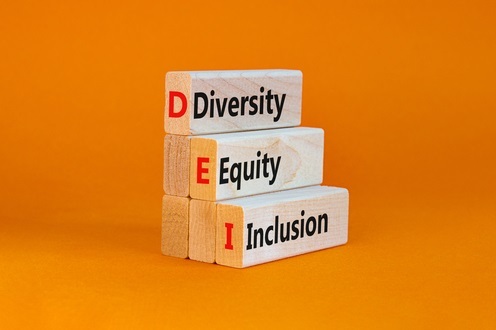
 Data Structure
Data Structure Networking
Networking RDBMS
RDBMS Operating System
Operating System Java
Java MS Excel
MS Excel iOS
iOS HTML
HTML CSS
CSS Android
Android Python
Python C Programming
C Programming C++
C++ C#
C# MongoDB
MongoDB MySQL
MySQL Javascript
Javascript PHP
PHP
- Selected Reading
- UPSC IAS Exams Notes
- Developer's Best Practices
- Questions and Answers
- Effective Resume Writing
- HR Interview Questions
- Computer Glossary
- Who is Who
Abolition of Untouchability
Introduction
Untouchability was a heinous practice in India that somehow based on the caste generated differences to the Indian Society. That generally was practiced as in tree format and people have superioritized their caste at every level, that spread the untouchability to the society.
Now for the time of now, Indian constitution has been abolished the practice of untouchability at every level of society in India. It was a revolutionary step and every Indian should know about it better. If you are preparing for government examinations, then Abolition of Untouchability is an important topic for you. Please read the article entirely for gaining all the related information to it.

So, let's start-
What is Untouchability?
Untouchability refers to the social practice in some Indian communities where people belonging to certain castes or communities are considered "untouchable" and are discriminated against and excluded from social, economic, and political activities. This practice is based on the belief in the caste system, where people are divided into different social classes and their status is determined by birth.
Untouchability is illegal in India and is punishable under the law. The Constitution of India prohibits discrimination on the grounds of caste or religion, and various laws have been enacted to protect the rights of the marginalized communities.
How Was Untouchability Spread to India ?
The origins of untouchability are not entirely clear, but it is believed to have evolved over time as a result of the caste system, which was established in ancient India. The caste system divides people into different social classes based on their birth, and each caste has its own duties and responsibilities.
The caste system also created a hierarchy of social status, with Brahmins at the top and Shudras (the so-called "untouchables") at the bottom. The practice of untouchability was reinforced through religious beliefs, cultural norms, and social customs, which over time led to the exclusion and discrimination of certain groups of people.
The spread of untouchability was also influenced by the historical, political, and economic factors of the time, including colonization, the influence of British rule, and the impact of modernization on traditional social structures.
What is Abolition of Untouchability?
The abolition of Untouchability is one of the essential rights guaranteed in the Indian Constitution by SC. Article 17 of the Constitution of India prohibits the practice of untouchability in any shape or form. This article clearly stipulates that "Untouchability is abolished, and any practice thereof is strictly prohibited and punishable offence."
Various laws have been enacted to protect the rights of these communities and to promote their welfare, such as the Scheduled Castes and Scheduled Tribes (Prevention of Atrocities) Act, 1989, and the Right to Education Act, 2009, among others.
Why The Abolition of Untouchability Was an Important Step to Be Taken?
Here are a few points to discuss -
It aimed to eliminate discrimination and promote equality among all citizens.
It recognized the inherent dignity and worth of every human being.
It sought to dismantle the oppressive social structures that had marginalized certain communities for centuries.
It paved the way for the upliftment and empowerment of historically oppressed and marginalized communities.
It strengthened the foundation of democracy and justice in India.
It promoted the principles of secularism and social justice enshrined in the Indian Constitution.
It helped to create a more inclusive and cohesive society where everyone has equal opportunities and access to resources.
It inspired similar movements for social justice and human rights around the world.
It demonstrated India's commitment to upholding the principles of human rights and dignity for all.
It set a precedent for the protection and promotion of minority rights, and the elimination of all forms of discrimination and prejudice.
Prohibited Acts Under Abolition of Untouchability
These acts are totally prohibited under Acts of Untouchability-
The practice of denying access to any public place, like public roads, temples, hospitals, hotels, or shops, to any person on the basis of caste.
The practice of social exclusion or ostracism of any individual or group on the basis of their caste.
The practice of forcing any person to do any job or work that is considered degrading or menial because of their caste.
The practice of using derogatory language or expressions that are derogatory to any person belonging to a certain caste.
The practice of preventing any person from entering any place of worship on the basis of their caste.
The practice of imposing any disability or restriction on a person's access to any educational institution on the basis of their caste.
The practice of refusing any person from serving or being served any food or water in any public place on the basis of their caste.
The practice of preventing any person from taking water from any well, tank, or other water sources on the basis of their caste.
The practice of using any traditional method to exclude, exploit, or discriminate against any person on the basis of their caste.
The practice of subjecting any person to any form of violence or exploitation on the basis of their caste.

